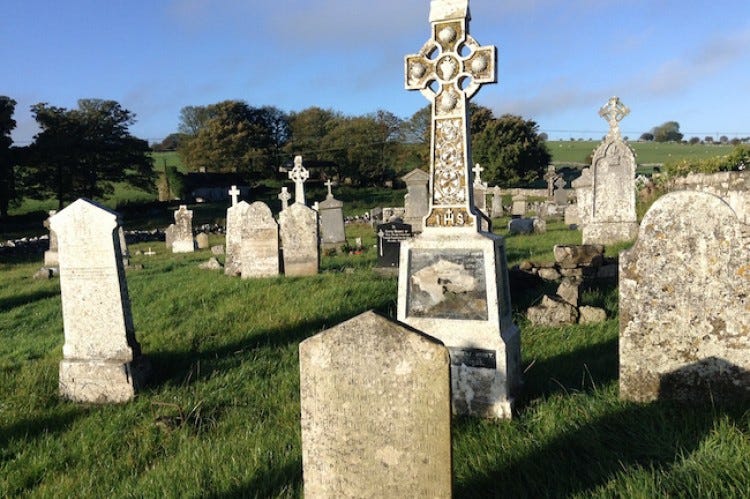Article: The War Against Death
When I was growing up in a small West of Ireland town, where death was intermittent and highly visible, the response of the community to the demise of one of its number was always a process of absorption followed by a moving towards acceptance, and this would occur relatively quickly when the deceased had been elderly and unwell, and more slowly when someone young and healthy had passed away. When an old person died, the idea that he or she had actually died of something was very much a secondary aspect. She had died. He was old. She had had a “good innings.” Only occasionally someone might inquire what she had died of, and this would almost always meet with vagueness. In a sense, it was unimportant. She had died, had been loved, would be buried on Tuesday. What was remembered was the life, personality, story of the deceased, not the reasons he or she had succumbed. The fact of death was an everyday matter. It was axiomatic. It was the will of God.
Death was met in some instances by a sense of shock, surprise, sorrow, occasionally something approaching incomprehension, but never—at the cultural level anyway—resistance. Communities expect their members to die. Individuals may rage against the death of a loved one, or the approach of their own demise, but healthy communities assent to death as a cost worth paying for life. The purpose of the mourning process among the immediate family and friends of the deceased was inevitably slower, but within the community the point was to absorb and move towards acceptance of what had happened, and this might take anything between a day and a month to achieve. After that the death became a fact of life.
This process, which I believe has been pretty universal for as long as humans have lived together, contrasts dramatically with what we have witnessed in the Western world over the past six months or so. Instead of meeting news of death with shock followed by sorrow, then moving towards acceptance, our cultures have constructed a kind of cartoon world around dying in which the phenomenon has been treated in each and every instance as though it had been avoidable, ought not to have happened, must be prevented from recurring in the same way to someone else.Instead of being treated as part of the normal attrition of life, the daily news of “new” deaths attributed to Covid-19 has been greeted by a kind of manufactured global shock, consternation, incomprehension and something akin to defiance. We have been “at war” with death. Each new Covid death, however questionably claimed or harvested, was treated as though it were another body recovered from the mountainside scene of a train crash. The numbers were crunched and recrunched, mounting all the time, like the numbers on a football scoreboard.
And we have known too, almost from the outset, that the numbers were being fraudulently gathered, with—virtually everywhere—every death with Covid being treated as a death from Covid, and every case of more than two symptoms being treated as proven without recourse to testing. Constant steams of propaganda about the deadliness of the disease were accompanied by an almost total shutting down of alternative perspectives. To read the rest of this article click here
